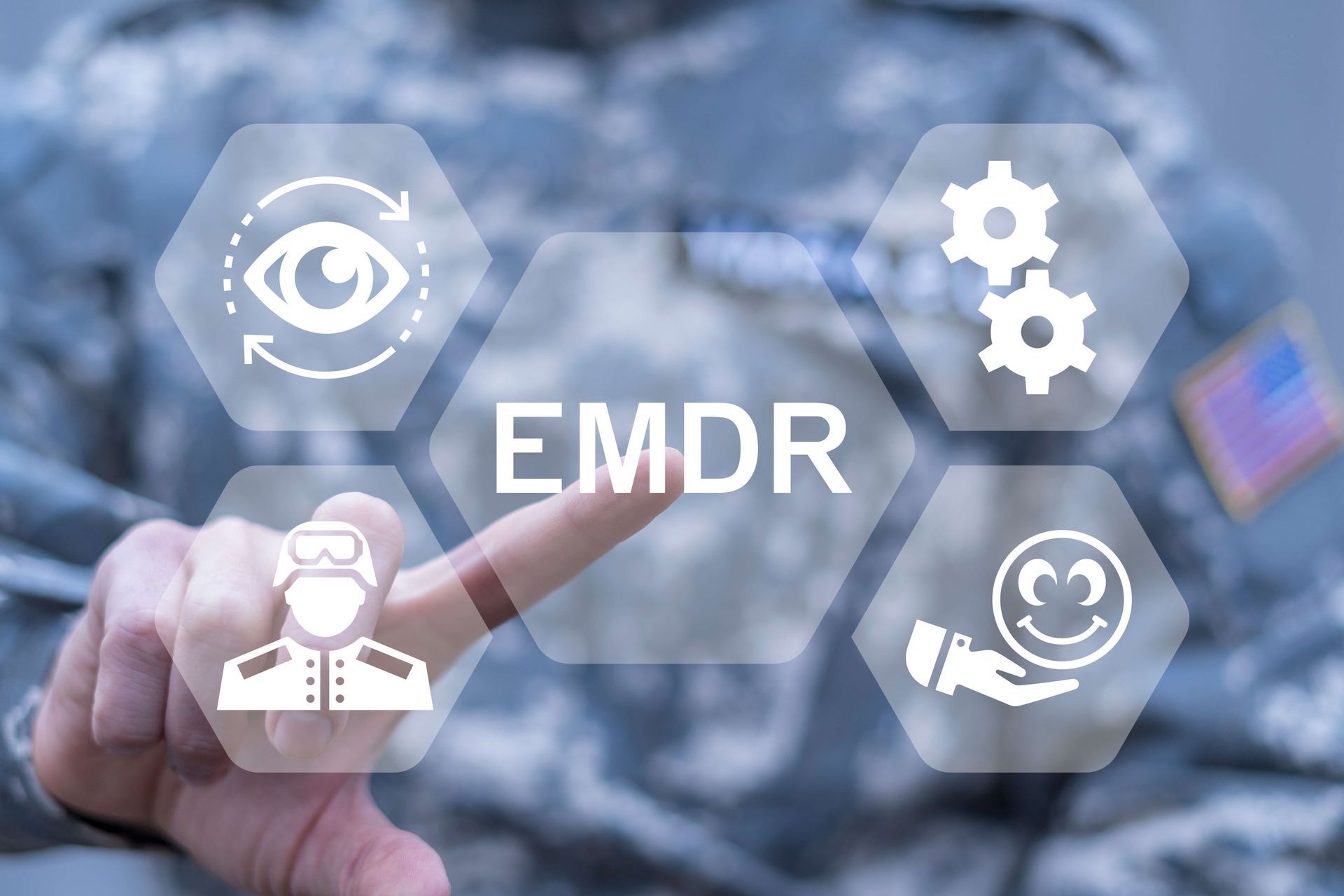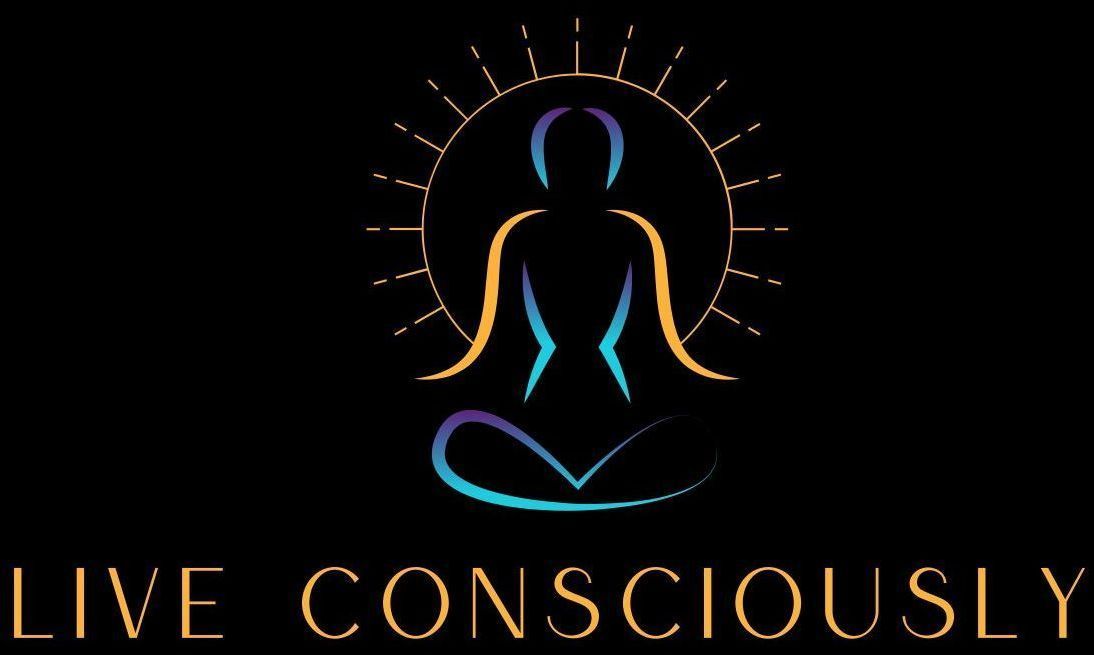How EMDR therapy helps process trauma without reliving the pain

By Alexandrea Long, LCSW-S
Licensed Clinical Social Worker and EMDR-trained therapist at Live Consciously, PLLC
If you've been carrying the weight of traumatic memories, you've probably wondered if healing is really possible—especially without having to relive those painful moments over and over again. I want you to know that your brain already has everything it needs to heal. Sometimes it just needs a little help getting unstuck.
That's where EMDR therapy comes in.

What is EMDR Therapy?
EMDR stands for Eye Movement Desensitization and Reprocessing, but I know that sounds clinical and intimidating. At its heart, EMDR therapy is simply a way of helping your brain do what it naturally wants to do: process difficult experiences so they stop feeling so overwhelming in your everyday life.
Think about it this way—when you get a physical cut, your body knows how to heal it. You don't have to think about sending white blood cells to the area or growing new skin cells. Your body just does it. Your brain has a similar natural healing process for emotional wounds, but sometimes trauma can interrupt that process, leaving memories "stuck" in a way that keeps them feeling fresh and painful.
EMDR therapy helps restart that natural healing process.

What to Expect in EMDR Therapy
One of the most common questions I hear is, "Will I have to tell you every detail of what happened to me?" The answer is no. While we'll talk about your experiences, EMDR therapy doesn't require you to relive trauma in vivid detail.
The EMDR Therapy Process
Preparation Phase
We start by building your capacity to handle difficult emotions. This might include learning grounding techniques, breathing exercises, or other tools to help you feel safe and stable. At Live Consciously, we integrate polyvagal theory into this phase, helping your nervous system recognize safety before we begin processing.
Assessment Phase
We'll identify specific memories or experiences to work on, but we approach this gently. You're always in control of how much you share and at what pace we move.
Processing Phase
This is where the bilateral stimulation happens. You'll focus on the memory while following the light bar or feeling the gentle pulsing in your hands. Many people are surprised by how natural this feels.
Integration Phase
We'll help you notice what's changed and strengthen positive beliefs about yourself.
EMDR for Complex Trauma: A Gentler Approach
If you've experienced complex trauma—repeated or prolonged traumatic experiences, often beginning in childhood—you might worry that EMDR therapy will be too intense. This is where our polyvagal-informed approach makes a significant difference.
Polyvagal theory teaches us that your nervous system needs to feel safe before healing can happen. We honor this by:
- Moving at your pace, always
- Checking in with your nervous system throughout sessions
- Using grounding techniques when needed
- Ensuring you feel in control of the process
We've found that when EMDR therapy is combined with nervous system awareness, the healing process feels gentler and more sustainable.

The Effectiveness of EMDR Therapy
EMDR therapy isn't just hopeful thinking—it's backed by extensive research. The American Psychological Association recognizes EMDR as an effective treatment for PTSD, and studies show it can be as effective as other evidence-based therapies, often in fewer sessions.
But beyond the research, what I've witnessed in my practice is the profound relief that comes when people realize they can heal without having to re-traumatize themselves in the process.
What Makes Our EMDR Approach Different
At Live Consciously, our EMDR therapists are trained not just in standard EMDR protocols, but also in trauma-informed care, polyvagal theory, and somatic approaches. This means we're paying attention to your whole system—not just your thoughts and feelings, but how your body is responding throughout the process.
We believe that healing happens in relationship, and our EMDR therapy reflects that. You're not just processing memories—you're learning to trust your own capacity for healing while feeling supported by someone who truly understands trauma's impact.
Is EMDR Therapy Right for You?
EMDR therapy can be helpful for many different types of traumatic experiences:
- Single-incident trauma (car accidents, assaults, medical procedures)
- Complex trauma and childhood abuse
- PTSD and complex PTSD
- Panic attacks and phobias
- Grief and loss
- Performance anxiety
You don't need to have a formal diagnosis to benefit from EMDR therapy. If painful memories are interfering with your life, relationships, or sense of self, EMDR might be worth exploring.

Common Concerns About EMDR Therapy
"What if I can't handle the emotions that come up?"
We'll spend time in the preparation phase building your capacity to manage difficult emotions. You'll have tools and support before we begin processing.
"What if nothing happens?"
Some people notice changes immediately, while others notice gradual shifts over time. EMDR therapy works differently for everyone, and we'll adjust our approach based on your unique response.
"What if I remember something I'd forgotten?"
While new memories can sometimes surface, this isn't the goal of EMDR therapy. When it does happen, we'll process those memories with the same care and support.
Starting Your EMDR Journey
If you're considering EMDR therapy, the first step is simply reaching out. During an initial consultation, we can talk about your experiences, answer your questions, and help you determine if EMDR feels like a good fit for your healing journey.
Remember, seeking help isn't a sign of weakness—it's a courageous step toward reclaiming your life. Your brain wants to heal, and sometimes it just needs the right support to do what it's designed to do.

About the Author
Alexandrea Long, LCSW-S, is a licensed clinical social worker and supervisor specializing in trauma recovery. She has advanced training in EMDR therapy, Internal Family Systems therapy, Somatic Experiencing, polyvagal theory, and other trauma-informed approaches. Alexandrea founded Live Consciously, PLLC to provide integrative, trauma-informed therapy that honors both the mind and body in the healing process. She is passionate about helping clients access their natural capacity for healing while providing the safety and support needed for lasting transformation.
Curious if EMDR might be part of your healing journey? We'd love to talk with you about how this gentle approach could help. Contact Live Consciously, PLLC at (254) 826-9450 or schedule a free consultation at liveconsciouslypllc.com.











